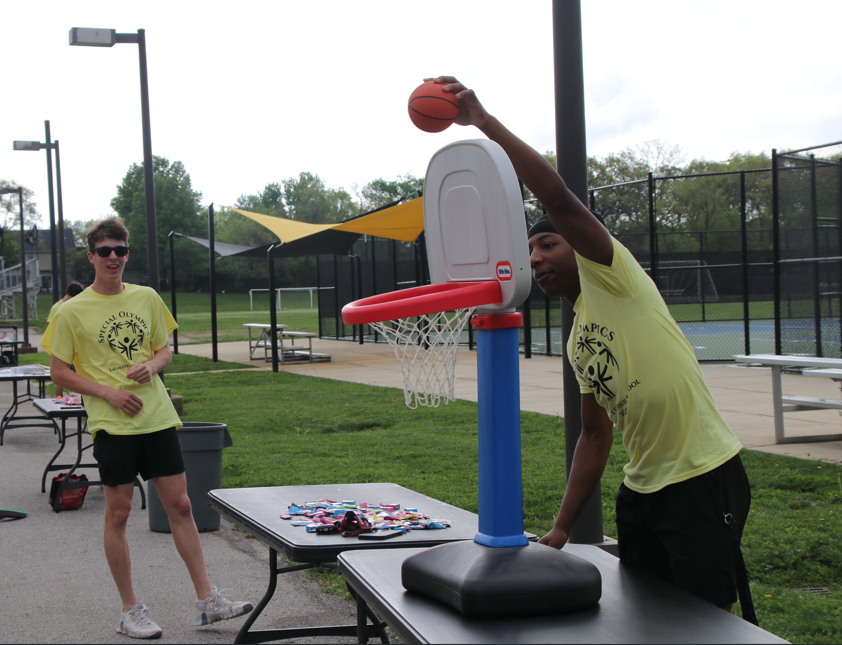Too much too soon: the consequences of underage gambling
February 3, 2016
17-year-old Sam knew that if he was caught gambling he could have a lot of problems both legally and financially; steep fines, his parents and school punishing him, and possibly even jail time. However, despite being aware of these consequences, Sam knew the chances of him getting caught were minuscule. A member of the online gambling sites for 2 years now, Sam was blind to the negative personal consequences that were happening in front of his eyes. He was losing all of his friends, hardly eating, stealing money from his parent’s safe, barely passing his classes, and constantly feeling anxious and overwhelmed. After taking a step back, Sam looked at himself in the mirror thinking “What have I become?” He knew that if he had been aware of these other underlying consequences, he never would have snuck into the casino with his older brother a few years back.
While there are many legal consequences of underage gambling, for example, fines ranging anywhere from $500 to $1000, six month suspension periods of one’s driver license, and possible prison time, the personal consequences are just as, if not more, devastating. A lot of times these personal consequences are unrecognized until it is too late, and unfortunately, individuals trying to overcome gambling problems wish they would have known ahead of time these consequences. Underage gambling results in negative personal consequences that many don’t consider, including impairing physical changes, emotional and social struggles, and life-changing long term effects.
Underage gambling takes a toll on an individual’s body; for many underage players, the game becomes an obsession, and because of this, it is no longer a hobby in an individual’s life, but a priority. Distracted by the game, underage gamblers allow their physical health to escape them. Students eating habits become skewed; MediLexicon International states that those who participate in underage gambling either begin eating more or less than usual, leading them to gain or lose weight in drastic amounts. Underage gambling also steals much needed sleep away from the players. Whether it be from stress about losing a big bet or even the inability to log off the computer at night, the lack of sleep takes a toll on their energy and ability to remember or focus on things that usually wouldn’t pose a problem. Casino Watch Incorporated delineates, stating “online gambling has led to many young people skipping sleep or college in favor of staying online.” The game has become an obsession, taking over the individual’s body and turning it into a machine that only works for the money.
Underage gambling not only hurts the player’s physical health, but proves to take a toll on the minor’s mental health as well. Mood swings become a common occurrence because the individual feels an extreme high when the gamblers win and an extreme low when they don’t. Slowly this unhealthy rollercoaster becomes a way of life, and these underage players begin to feel the extreme high and lows in every aspect of their life. Underage gambling also leads the minors to develop anxiety and depression. Human brains are not fully developed until the age of 25, meaning we don’t know how to handle stress too well yet. The National Council on Alcoholism and Drug Dependence states that one in five compulsive gamblers have attempted suicide. While the number may seem small, in a room of 20 young gamblers, 4 of them decided life wasn’t worth all the pain and pressure they were feeling from the game. The mental aspects of a gambling addiction affect one’s life forever, allowing individuals to lose their sense of self.
Underage gambling can lead to a multitude of lifestyle changes, ranging anywhere from money problems to substance abuse issues. Individuals tend to become extremely unstable financially, facing frequent job changes, and even passing from spur of the moment shopping sprees to begging for cash from others to feed their addiction. Many underage gamblers turn to alcohol and drugs as a coping mechanism for the stress they feel in the game. As if this isn’t bad enough, these substances lead them to commit crimes that they never imagined themselves doing. Relationship counselor Nick Weetman corroborates, stating, “25 to 30 per cent of my caseload was behind bars for crimes related to their addiction, including brazen robbery and drug dealing.” Teenagers who were originally introduced to the game for fun now face serious consequences and large amounts of time in prison.
Unfortunately, Sam learned the personal consequences of underage gambling the hard way. Sam, like many others, was a victim of gambling at a young age, and faced serious repercussions. While occasional gambling over the age of 21 is legal and a source of entertainment for many adults, the massive physical, mental, and lifestyle casualties that underage players face prove to be devastating. In addition to these life altering consequences, the fines, prison time, and other punishments affect an individual forever, bringing forth unavoidable hardships in the future. Don’t let yourself or a friend learn these consequences the hard way like Sam did. If you or a friend are struggling with a gambling problem, call 1-800-GAMBLER and speak to a professional. And if it isn’t too late for you, do yourself a favor and wait until you’re 21; playing legally and responsibly will give you far less consequences and much more fun than anything underage could provide.

































